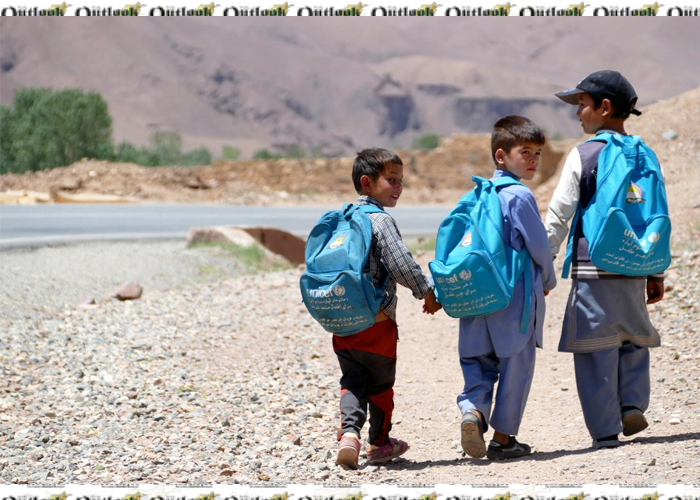Although the new school year has formally begun with the beginning of New Year, the educational system faced so many challenges in the country. The rise of poverty, lack of qualified teachers, administrative corruption, insecurity, lack of standard schools or standard classrooms, lack of uses technology, the culture of bullying among students, lack of sanitation in schools, lack of parent involvement in educational programs, lack of good knowledge management, and lack of transportation are some of the problems that challenge the educational system in the country. Poverty, insecurity, and weak management are blamed as key factors. A large number of students go to schools with hungry stomachs while others enter classrooms with fear of terrorist attacks and bomb explosions. Though discussing all these challenges is beyond the patience of this piece, it will try to divulge some of the root problems.
As pointed out, one of the main obstacles to educational activities is the rise of insecurity in Afghanistan. It has not only created physical barriers against teachers and students but also created psychological barriers. Some of the students are very dynamic and motivated during primary school but when they grow up and get aware of insecurity conditions in the country they become fully unmotivated and disappointed about their future. Unfortunately, female students are more vulnerable comparing to male students. Their parents do not allow their daughters to go to schools when there is fear of insecurity or a long walk between school and homes. In general, a large number of male and female students quit schools before graduating from high school while others leave the country after getting aware of the general security status of the country.
The next challenge of educational activities is poverty in Afghanistan. The outbreak of the covid-19 and also the rise of violence in recent years have worsened the economic conditions of people throughout the country. Now, more than 70% of people do not have dry bread to survive, let alone send their children to schools and purchase educational items. Unfortunately, the prices of the goods have dramatically increased in the free market of the country due lack of Anti-monopoly or Anti-Cartel law in the country. This issue has not only caused qualitative effect in the educational sector but also quantitative consequences.
Quantitatively, as many as 3 million children are out of school, and nearly 60 percent of those children are female. That’s 1 in every 3 girls attending school, a lack of female teachers specifically in rural areas may be a reason for the low enrollment of girls. In half of all Afghan provinces, less than 20 percent of all teachers are female. About one-third of girls are married before the age of 18 and are then urged to discontinue their education.
Qualitatively, we could not satisfy the technical and educational needs of the country. Because of the poverty and insecurity condition of the country, we have forgotten the importance and importance of providing quantitative educational services in the country. For example, a large number of teachers have not graduated from higher education, and still, our schools are equipped with modern technologies. Therefore, the majority of school and even university graduates are not skilled in how to use the internet in their daily or educational life. Out of modern technologies, our young generation just knows how to waste their time on social media networks such facebook and Twitter.
Although a large part of the qualitative problem linked to the privatization of educational services, it seems that private schools have been deviated from a sound course of the competition. It is said that they have started making hidden and unhidden cartels to loot the already poor people in the country. Because of no Anti-monopoly Law in the free-market of Afghanistan, the private educational sectors are changing to destructive pressure in the country instead of attracting students through sound competition. This year, without enhancing the quality of educational services and without adding to the salaries of the teachers, all the private schools have unitedly increased the fees. Unfortunately, they just think about how to fill their pockets by hiring the weakest teachers and low pay salaries while attempting to take more fees. Therefore, many families are compelled to stop using private educational services due to the same reason. Despite these many disorders, no legal mechanism has created to ensure the stability of the free-market and also revive justice in the market.
Accordingly, a large part of the qualitative problem linked to unprofessional teachers in public schools; the unprofessionalism of more than 40% of school teachers is a serious challenge facing the country’s education. Ministry of Education has not succeeded to hire professional teachers in the last few years and with a shortage of unprofessional teachers and unqualified teachers in remote areas of the country. However, it is accepted to increase about 2000Afs in the salary of teachers and other public personnel but it will not be enough for hiring professional and qualified teachers.
Given the abovementioned challenges, Afghanistan is considered as one of the most exceptional countries in the world where many school-age children have no access to schooling or they have access to the lowest quality education. If we really want changes, we must put education at the top of national priorities. As it is the best way to reaching sustainable peace, stability, and brotherhood. If we do not change our views towards education, trillions of dollars cannot change our country. We will always miss economic and political opportunities as we wasted in the last 20 years. Thus, we will not be able to use the natural and geographical blessings we already have.
Home » Opinion » The beginning of school year and its challenges in Afghanistan
The beginning of school year and its challenges in Afghanistan
| Mohammad Zahir Akbari

